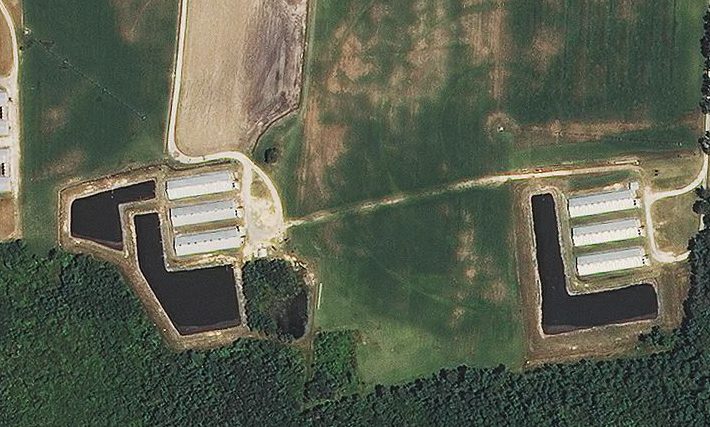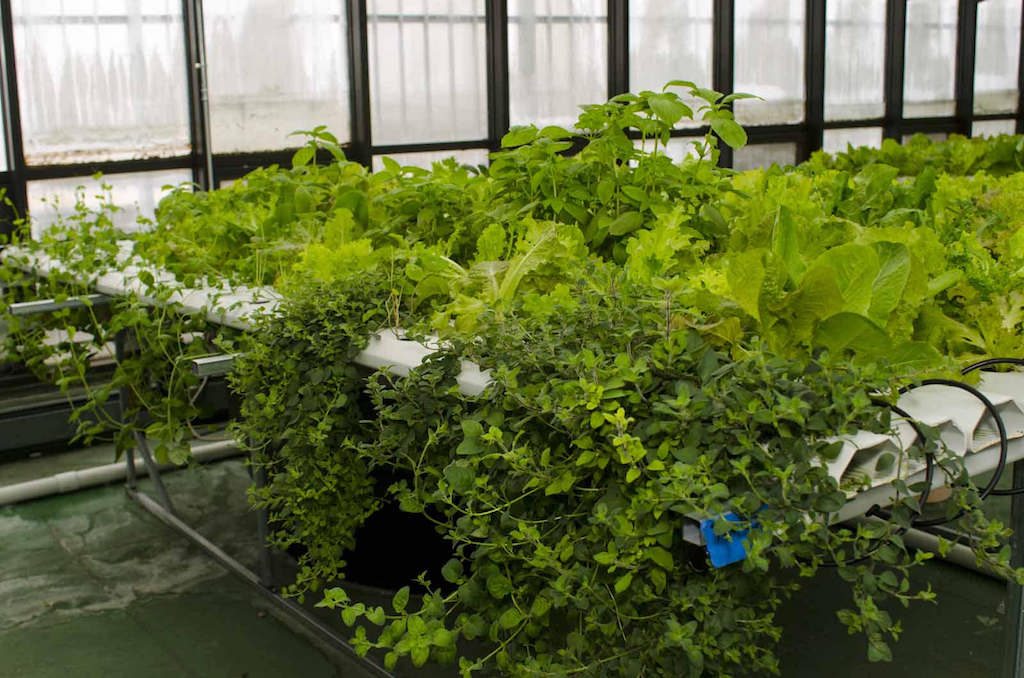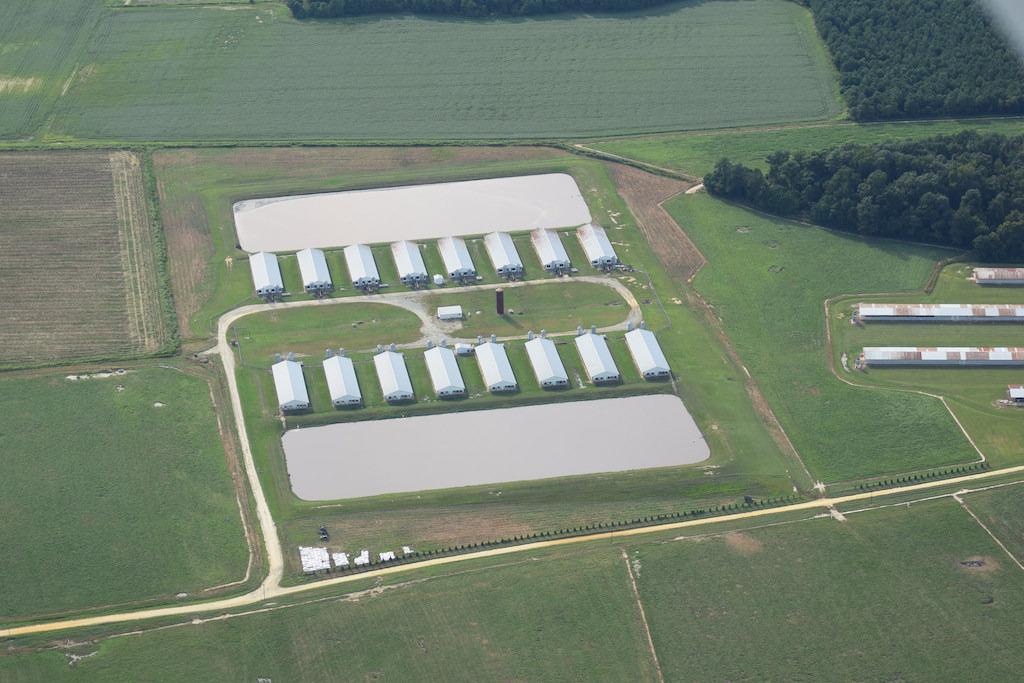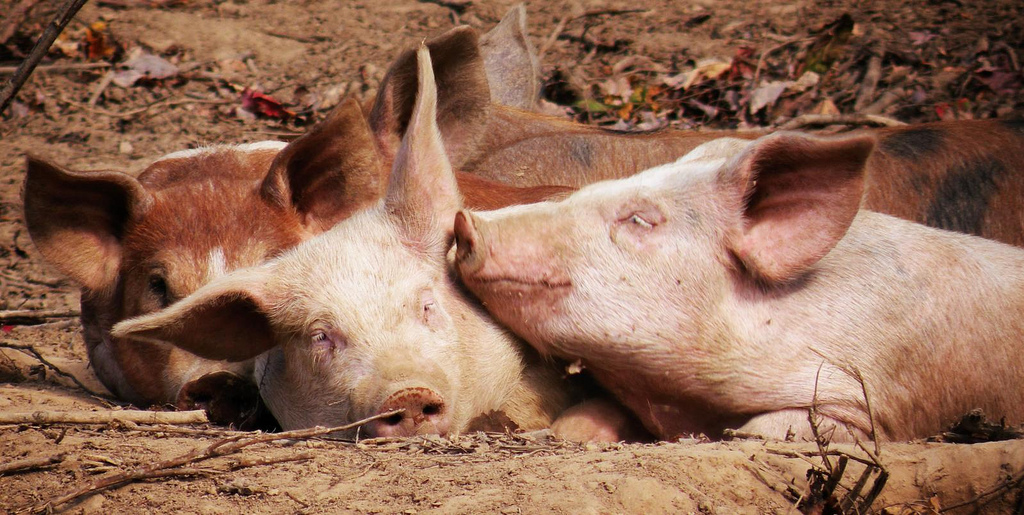A federal court on Monday ordered that Murphy-Brown, LLC, the hog-growing subsidiary of Virginia-based (and China-owned) pork producer Smithfield Foods, must allow an independent expert to further inspect the groundwater surrounding 11 of its facilities in eastern North Carolina for potential contamination.
In 2006, the Southern Environmental Law Center (SELC), which represents conservation groups including Waterkeeper Alliance, entered a consent decree with Murphy-Brown to resolve previous lawsuits filed against two of its 275 hog production facilities for allegedly violating environmental laws.
The phase-one analysis was completed in 2011, at which point an independent groundwater expert identified 11 specific operations that demonstrated either lagoon leakage or elevated nitrogen concentration in the facilities’ production wells—a potential indicator of groundwater contamination.
But since then, allege Waterkeeper and other conservation groups involved in the agreement, Murphy-Brown has failed to comply with its obligations. According to the motion filed by SELC in the United States District Court for the Eastern District of North Carolina, “over the last three years defendant Murphy-Brown has blocked the consultant from evaluating the eleven facilities … resulting in continued threat to groundwater quality.”
In May of 2017, the North Carolina legislature severely limited the liability of swine farms in “nuisance lawsuits.”
This is hardly the first accountability action taken against Murphy-Brown in North Carolina, a state that boasts more than 2,000 hog farms and, after Iowa, is the country’s second-biggest hog producer. In 2013, nearly 500 mostly African-American residents in the eastern part of the state filed lawsuits against Smithfield and its subsidiaries, claiming that the stench of millions of tons of feces and the noxious fumes emitted from nearby concentrated animal feeding operations (CAFOs) were not only compromising their health, but also devaluing their properties. In May of 2017, however, the North Carolina legislature severely limited the liability of swine farms in such “nuisance lawsuits,” capping the total allowed damages plaintiffs could be awarded at the fair-market value of their properties. It was an obscene catch-22: recovery limited to fair-market value on properties whose fair-market value had been profoundly undermined by their proximity to corporate hog farms.
In October, New Jersey’s Democratic Senator Cory Booker announced the Environmental Justice Act of 2017, in part, to address exactly these conditions at the federal level:
“Many communities across the country are facing environmental and public health threats that for too long have gone unaddressed, seemingly only noticeable to those who deal with the effects on a daily basis. These communities are often communities of color or indigenous communities, and they tend to be low-income,” Booker said in Newark when he announced the bill in the presence of local community leaders. “This is unacceptable and our bill is an important step in changing this reality. This legislation codifies and expands requirements that federal agencies mitigate impacts on vulnerable and underserved communities when making environmental decisions, and provides those communities with legal tools to protect their rights. We cannot have social justice or economic justice without environmental justice.”
But back to local accountability—at least for this week. Conservation groups are publicizing the District Court’s order as one win in a seemingly endless stream of investigations, regulations, and disputes. “Nitrate pollution in groundwater, which can result from leaking lagoons, land application and breaches in waste piping at industrial swine production facilities, poses serious health risks to people consuming untreated well water and can contaminate nearby streams and rivers,” said Kelly Hunter Foster, senior attorney for Waterkeeper Alliance in a statement on the group’s website. “We are pleased that the court put an end to Murphy-Brown’s four-year fight to block sampling and cleanup of groundwater pollution at these company-owned swine facilities in North Carolina.”












